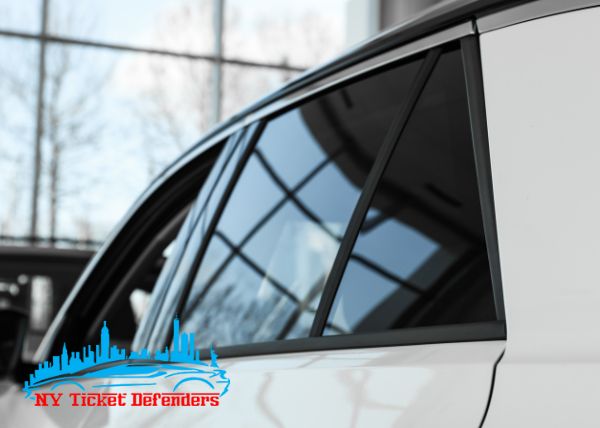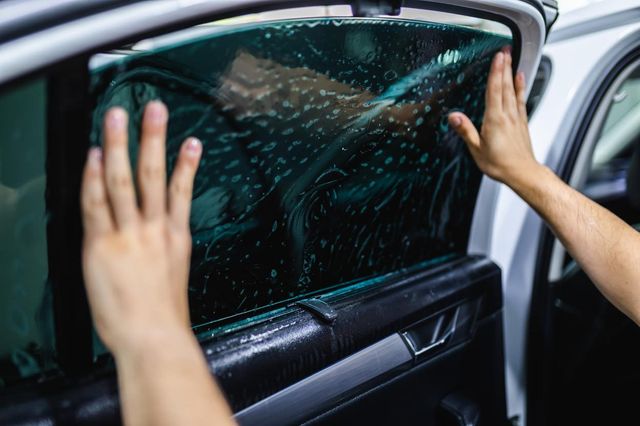Top Factors to Select Professional Vehicle Window Tinting Solutions
Top Factors to Select Professional Vehicle Window Tinting Solutions
Blog Article
Home Window Tinting Regulations and Standards: What You Required to Know Prior To Tinting Your Cars And Truck
Before proceeding with home window tinting for your car, it is necessary to familiarize on your own with the varied legislations and standards that govern this technique across different states. These policies dictate the permitted levels of tint darkness, commonly gauged by noticeable light transmission (VLT) portions, and include particular terms for front windshields aimed at ensuring road safety.
Introduction of Window Tinting Rules
Window tinting legislations are frequently subject to variant throughout various jurisdictions, showing neighborhood policies and security factors to consider. These regulations dictate the allowable levels of color darkness and reflectiveness on car windows, guaranteeing that drivers preserve sufficient visibility while likewise safeguarding against unsafe UV rays and heat.
Many guidelines categorize home window tinting based upon the Visible Light Transmission (VLT) portion, which indicates the amount of light that can go through the home window. Generally, reduced VLT portions represent darker tints. Regulations typically separate between the front, side, and back home windows, with stricter restrictions put on the front windscreen to improve safety and security for both the vehicle driver and other road users.
Additionally, some territories enforce constraints on the reflectivity of the color, stopping extreme glow that might hinder presence. Exemptions to these regulations may exist for individuals with details clinical problems requiring additional sun defense. Compliance with home window tinting guidelines is essential, as offenses can result in fines, obligatory elimination of the color, and possible boosts in insurance costs. It is important for lorry owners to familiarize themselves with local laws prior to continuing with window tinting setups.
State-by-State Tint Laws
Recognizing the certain home window tinting laws in each state is important for lorry proprietors seeking to follow the law. Each state in the united state has actually developed its very own collection of regulations regulating window tinting, which can differ substantially. These laws usually dictate the allowed levels of color darkness, the types of windows that can be tinted, and any kind of medical exceptions that may use.
As an example, states like The golden state have stringent constraints on tint darkness for front windows, while others, such as New Mexico, may permit darker colors. Furthermore, particular states mandate specific exposure percentages for numerous windows, including the windscreen, front side windows, and back home windows. It is important for cars and truck owners to acquaint themselves with their state's legislations to prevent potential fines or penalties.
Moreover, some states might require an accreditation sticker label to be placed on tinted home windows, indicating conformity with state regulations. Failing to stick to these regulations not only takes the chance of legal consequences however can likewise affect safety and visibility while driving. Vehicle proprietors ought to carry out detailed research or consult neighborhood authorities to ensure complete understanding and compliance with state-by-state color regulations.
Allowed Color Levels and Types
Numerous vehicle owners might be amazed to discover that enabled tint degrees and kinds vary extensively across different states. Each state has actually developed its own regulations relating to the acceptable darkness and reflectivity of home window color, often determined by Visible Light Transmission (VLT) percents. VLT describes the amount of light that can pass via the tinted home windows; therefore, a lower percentage indicates a darker color.

Furthermore, the sorts of tint materials allowed can differ, with some states forbiding mirror-like or metallic coatings. It is necessary for vehicle proprietors to familiarize themselves with their state's certain regulations to make certain compliance. Non-compliance can cause penalties, compulsory elimination of the color, or other Related Site lawful repercussions, making it essential to comprehend these policies before proceeding with installment.
Medical Exceptions for Tinting
While not all states give allocations for medical exemptions regarding window tinting, those that do acknowledge the need for certain people to improve visibility and convenience as a result of medical problems. Different clinical problems, such as lupus, skin cancer, and particular eye conditions, can provide people particularly sensitive to sunshine. As a result, these individuals may call for darker tints to safeguard themselves from hazardous UV rays and glare.

It is very important to note that despite a clinical exception, there may still be limitations on the degree of color enabled. Compliance with state regulations guarantees that individuals are both safeguarded and within legal limits. Those thinking about medical exceptions should call their local Division of Motor Autos or equivalent authority to comprehend the procedures and demands required to i loved this request an exception efficiently.
Penalties for Non-Compliance
Failing to follow window tinting legislations can result in considerable penalties, which vary by state. Law enforcement companies are encouraged to release citations for automobiles that do not stick to the defined tinting laws. These charges normally include penalties, which can range from small total up to numerous hundred dollars, relying on the intensity of the offense and the state concerned.
In some jurisdictions, duplicated offenses might lead to rising penalties or added penalties, such as necessary court appearances. Non-compliance may require the removal of prohibited tinting, commonly at the proprietor's expenditure. In severe cases, habitual offenders might encounter suspension of their lorry registration up until compliance is achieved.
Furthermore, insurance coverage implications might arise from getting numerous citations for home window tint infractions. Insurance companies might see such violations as a sign of riskier habits, potentially bring about increased premiums or trouble in coverage.
To avoid these charges, it is critical for car proprietors to familiarize themselves with their neighborhood window tinting legislations and guarantee that their automobile complies (Window Tinting). This positive method not only avoids legal ramifications but also advertises roadway safety and security
Verdict

A lot of laws classify home window tinting based on the Visible Light Transmission (VLT) portion, which shows the amount of light that can pass through the home window. Compliance with home window tinting regulations is critical, as violations can result in fines, required elimination of the color, and potential rises in insurance costs.Comprehending the particular window tinting regulations in each state is vital for automobile owners looking for to conform with the law. These laws usually dictate the permitted degrees of tint darkness, the types of windows that can be tinted, and any clinical exemptions that may apply.
For instance, states like The golden state have rigid limitations on color darkness for front home windows, while others, such as New Mexico, might enable darker tints.
Report this page